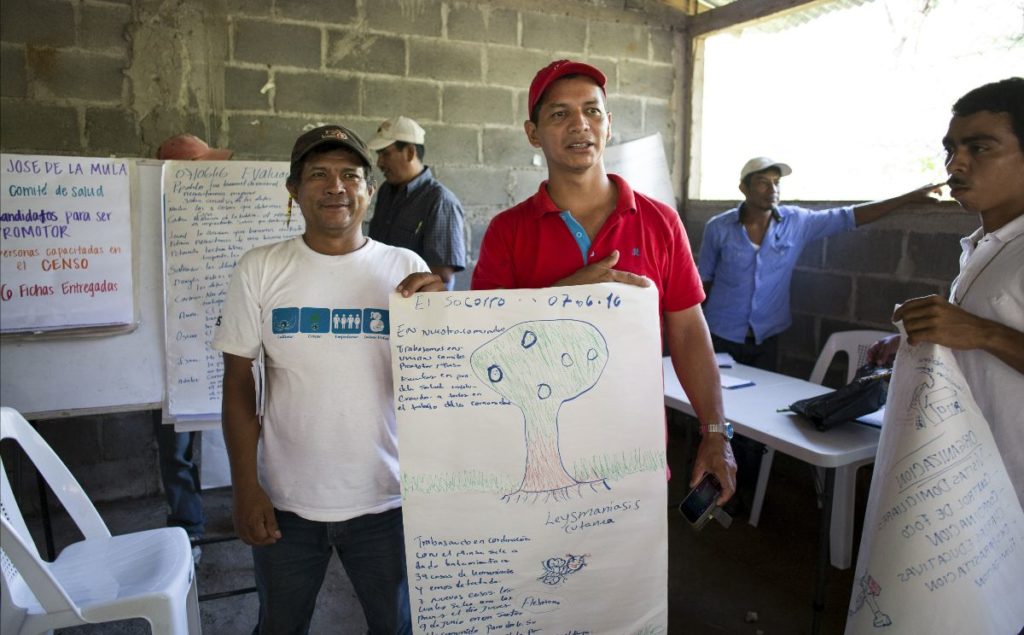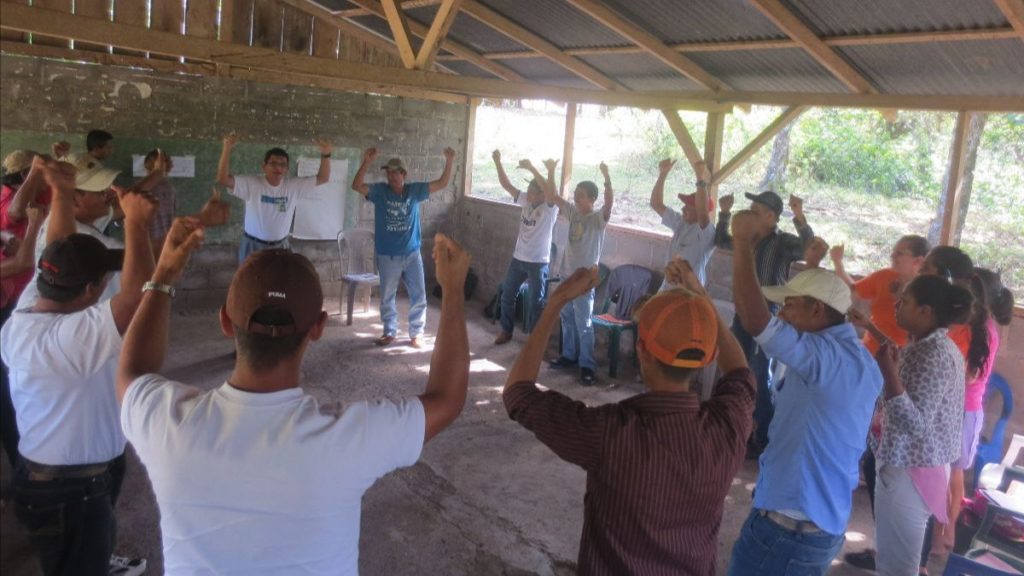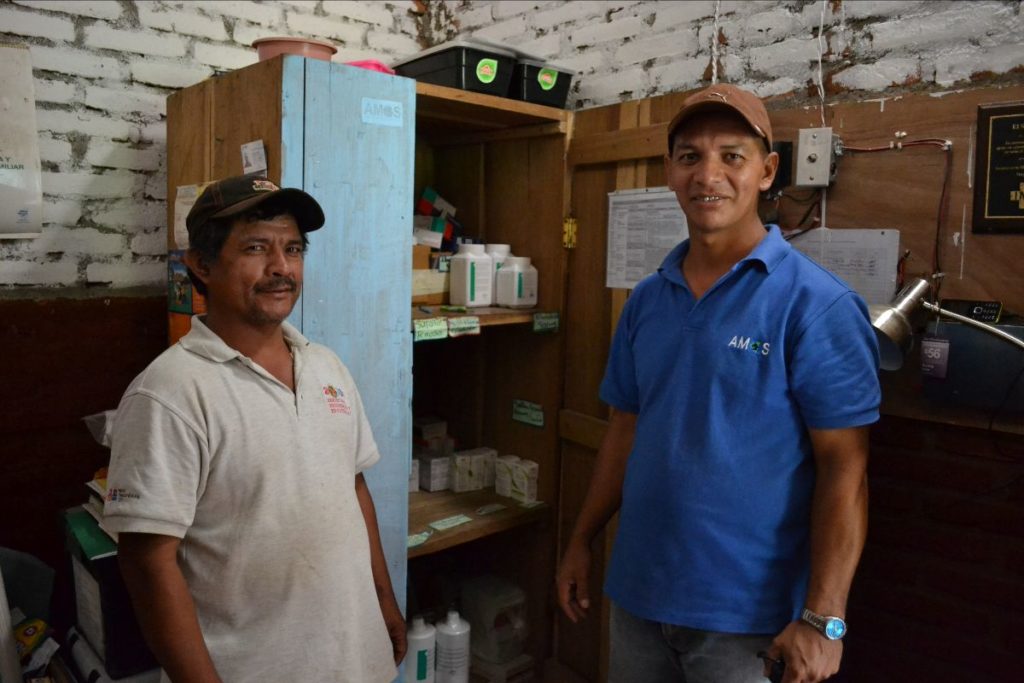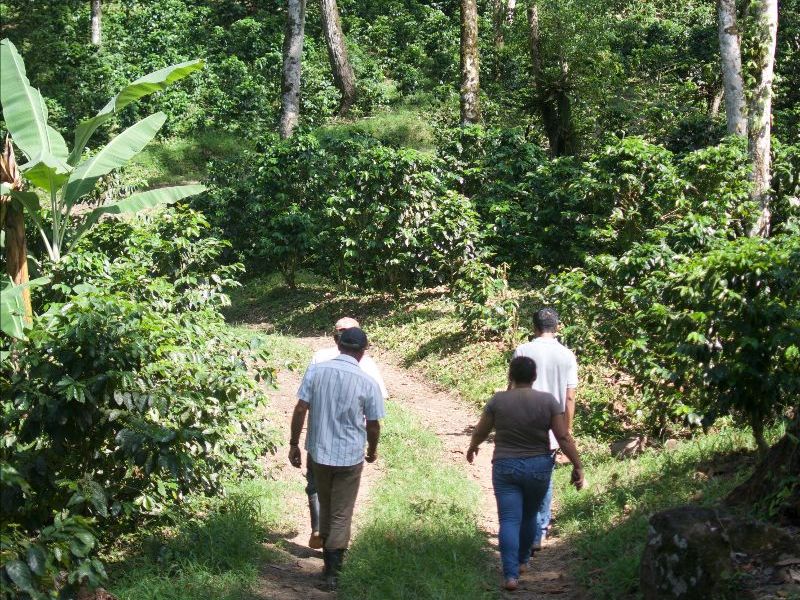
In March 2016, two young children arrived at the community clinic in El Socorro, Matagalpa, with severe skin problems. When Isaac Fley, the AMOS-trained Health Promoter in the community, saw the sores, he recognized that they could be from a disease called leishmaniasis.
Leishmaniasis is a parasitic disease spread by the bites of sand flies. There are several different forms of leishmaniasis, but the most common forms cause skin sores and can affect internal organs like the spleen, liver, or bone marrow.

Isaac referred both children to the nearest health center to get tested. They tested positive for the disease, so Isaac coordinated with the health authorities to get them treatment, which consists of 20 shots given for 20 consecutive days. The treatment is specialized and is not part of the essential medications kit that AMOS provides to our partner communities.
Isaac and the health committee in El Socorro knew how rapidly this disease could infect others in their community. They organized themselves to do home visits to the whole community, making sure no one was left behind. To do this effectively, they coordinated with religious leaders from different churches, teachers and school staff, and even local grocery store owners.
During home visits, health committee members counseled families primarily on preventing the disease. They explained about the transmission of the disease, and why it was important to improve home hygiene, clean their backyards, fumigate, and cut weeds to eliminate potential breeding sites for the sand flies. They also educated families about the symptoms and warning signs to be aware of, and where to get tested for the disease.

By mid-June of that year, there had been 39 confirmed cases of leishmaniasis in El Socorro, and all received prompt treatment. Isaac and the health committee members coordinated with health authorities to organize the days their staff would visit the community to test suspicious cases and facilitate treatment for the people who had tested positive.
The health committee members also helped to let people know about the risks of not treating the disease, including skin ulcers that could affect the nose, mouth, and even bones.
“Together, we mobilized to strengthen community vigilance and coordinate with local health authorities. Everyone in the community was engaged and supported the efforts to eradicate the vector of the disease,” Isaac said.

A few months later, all 39 patients had healed completely.
Your generosity supports more than just health care work – it enables community empowerment.
Thanks to compassionate donors like you, AMOS is able to support and walk alongside local leaders like Isaac and the El Socorro health committee members to help them care for their most vulnerable neighbors during times of immense need.

Stay tuned to read more of your 15 Stories of Hope!

What a blessing Isaac is to El Socorro!. We met with him recently -Feb8=Feb18